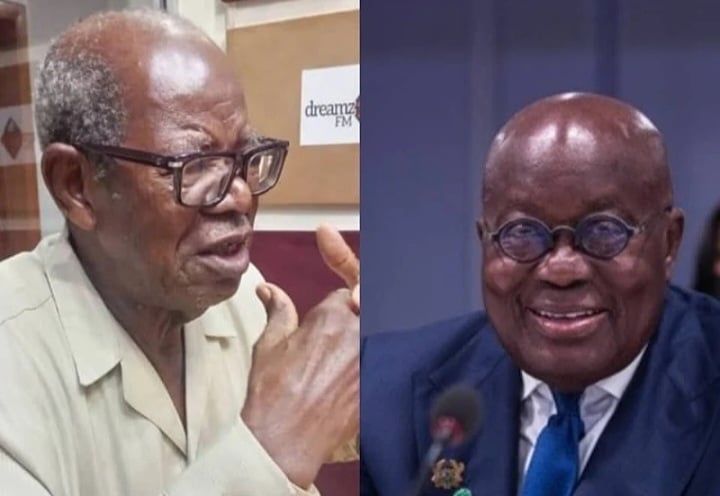The New Patriotic Party’s (NPP) crushing defeat in the 2024 general elections has prompted introspection and blame-laying within the party. Robert Ajene, a prominent member of the NPP’s Council of Elders, has pointed the finger squarely at the leadership style of former President Nana Addo Dankwa Akufo-Addo. Ajene argues that Akufo-Addo’s unwillingness to heed advice and address concerns, even from within his own party, significantly contributed to the NPP’s downfall. He cites the former President’s refusal to dismiss Finance Minister Ken Ofori-Atta as a prime example of this disconnect, highlighting the widespread public and intra-party calls for Ofori-Atta’s removal that went unheeded. This perceived intransigence, Ajene asserts, fueled public discontent and ultimately led to the party’s electoral demise.
Ajene’s critique centers on Akufo-Addo’s alleged disregard for the voice of the Ghanaian people. He maintains that the former President failed to adequately address critical issues impacting the welfare of the citizenry and dismissed concerns raised by both the public and members of his own party. This created a growing chasm between the government and the governed, eroding public trust and ultimately manifesting in the NPP’s defeat at the polls. Ajene argues that the electorate’s dissatisfaction was not directed at the NPP as a party, but rather at Akufo-Addo’s leadership specifically. This discontent, he posits, became a significant obstacle for the party’s 2024 presidential candidate, Dr. Mahamudu Bawumia.
While acknowledging Dr. Bawumia’s capabilities and potential as a leader, Ajene suggests that Bawumia’s close association with Akufo-Addo proved to be a significant political liability. He contends that the electorate perceived Bawumia as an extension of the Akufo-Addo administration, leading many to believe that a vote for Bawumia was effectively a vote for the continuation of Akufo-Addo’s policies and leadership style. This perceived link, Ajene believes, ultimately cost Bawumia the election, as voters sought a change from the previous administration.
Analyzing the dynamics of the 2024 election, Ajene suggests that the public’s desire for change overshadowed Bawumia’s individual merits. Despite recognizing Bawumia’s potential, voters were hesitant to embrace a candidate they perceived as closely aligned with the previous administration. This association, Ajene argues, effectively neutralized Bawumia’s campaign efforts and ultimately led to his defeat. The electorate’s desire for a departure from Akufo-Addo’s leadership, he concludes, effectively trumped their consideration of Bawumia’s individual qualities and potential.
The implications of Ajene’s critique extend beyond the 2024 election and offer valuable lessons for the NPP moving forward. His analysis suggests a need for the party to critically examine its internal dynamics, communication strategies, and responsiveness to public concerns. A more inclusive approach to decision-making, coupled with a demonstrated commitment to addressing the needs of the citizenry, could help the party regain public trust and rebuild its electoral prospects. Furthermore, the party must carefully consider how it positions its future candidates, ensuring that they are perceived as independent thinkers capable of charting a distinct course, rather than simply inheriting the mantle of previous administrations.
The NPP’s path to recovery, according to Ajene’s analysis, hinges on its ability to learn from the mistakes of the past. By embracing internal dialogue, actively listening to public concerns, and strategically positioning its candidates, the party can begin to rebuild the trust and support it lost in the 2024 election. This process of introspection and reform is crucial not only for the party’s electoral viability but also for its ability to effectively contribute to the democratic process and serve the interests of the Ghanaian people. The 2024 election serves as a stark reminder of the importance of accountability, responsiveness, and a genuine connection between leadership and the citizenry.


